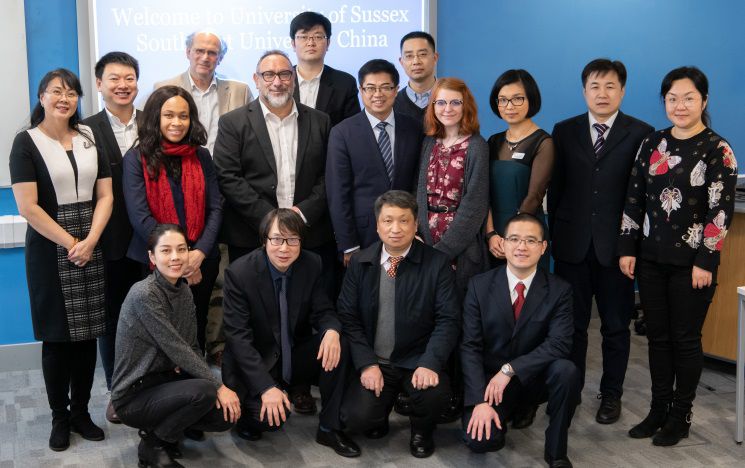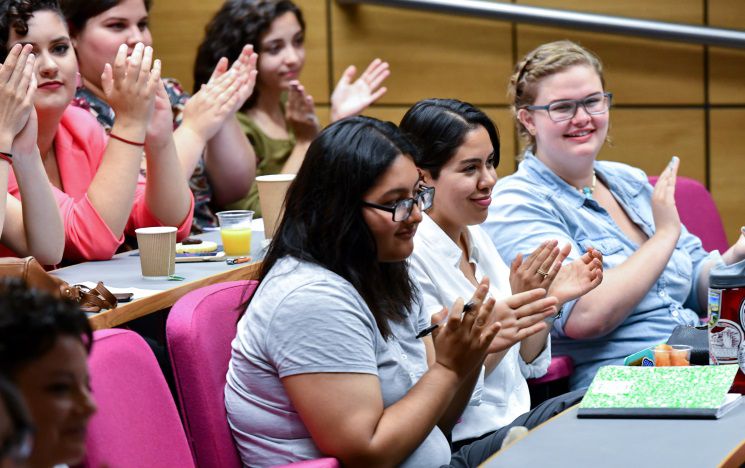News and events
News
SSRP celebrates the power of equitable partnerships in Positive Futures Report
By: Sephora Imomoh
Last updated: Friday, 11 July 2025
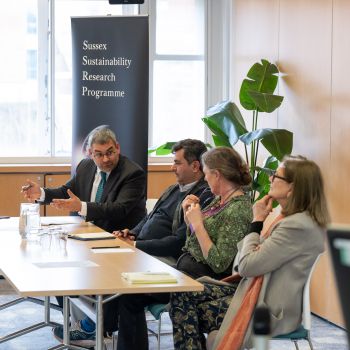
Prof. Robin Banerjee chairing the Equitable Partnerships event
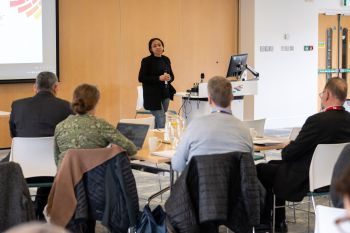
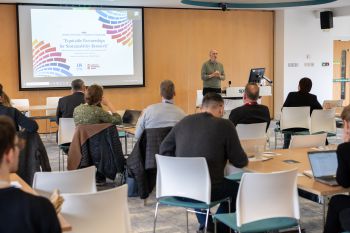
SSRP Director, Professor Joseph Alcamo speaking at the event
Positive Futures: Fostering Sustainability Research Through Equitable Partnerships.
The complex challenges of our world can only be addressed through partnerships, and the 17th Sustainable Development Goal: Partnerships for the Goals - was designed as an underpinning goal to support the attainment of all the other goals.
Partnerships have been pivotal for SSRP because we recognise that equitable partnerships lie at the heart of impactful sustainability research, particularly in international settings. Over the past seven years, SSRP fellows have worked alongside international partners to deliver the innovative projects covered in this report. In February 2024, we hosted a workshop that explored the concept, drawing on the experiences of our research fellows, and examined the definitions and key characteristics of equitable partnerships in the context of delivering sustainability research, highlighting the requirements for setting them up and the barriers that many have overcome. The workshop featured Sussex Sustainability Research fellows and their global partners covering projects from Ecuador, Syria and South Africa.
Many definitions abound of equitable partnerships. However, the collective discussions showed that in a broad sense, in an equitable sustainability research partnership, the engagement goes beyond the research questions and supports civic engagement to the benefit of the communities where the research takes place, ensuring a balanced legacy beyond the research period. This is important given that the majority of the research undertaken as part of this programme takes place in low and middle-income countries.
The importance of place now comes to the fore. Whether working in conflict zones, in poor, under-resourced communities or inaccessible biodiverse forest regions, our researchers are aware of the need for flexibility and trust to counter any power imbalances that often affect international research partnerships. Many other challenges abound, including constraining funder guidelines, low risk appetite, adverse policies, limited infrastructure and geopolitics. Delivering high-impact, successful, and equitable research partnerships, therefore, requires a high level of intentionality at the research design stage.
Through our programme we have found that the following are key ingredients for success.
Strategic power sharing—Leadership of work packages in a funded research project could be split between investigators from both the Global South and Global North or, in other contexts, between the funded partner and the communities where they work. Decentralising power through distributed leadership.
Equitable allocation of intellectual property (IP): Ensuring equity in the allocation of IP rights to both Northern and Southern stakeholders. Recognising that benefits need to be shared for the partnership to be equitable. Commercial benefits arising from project IP should be distributed equitably among the key partners.
Collective authorship and data ownership: Clear agreement from the outset on data ownership and authorship of research papers or manuscripts. Ensuring that Southern-based investigators can also become first and senior authors on research papers.
Partnerships tend to have varying degrees of equity, and these lie on a sliding scale. Sustainability research partnerships typically strive for equity, inclusion and mutual respect, demonstrating this to varying degrees. As such, a more equitable partnership with an evenly balanced scale is more likely to be successful. By addressing power dynamics, enhancing transparency, and fostering genuine engagement, the research community can work towards more impactful and sustainable outcomes in the pursuit of the global sustainability goals. SSRP is looking ahead to continuing to demonstrate leadership in this area as we head to a positive future for people, nature and the planet.
